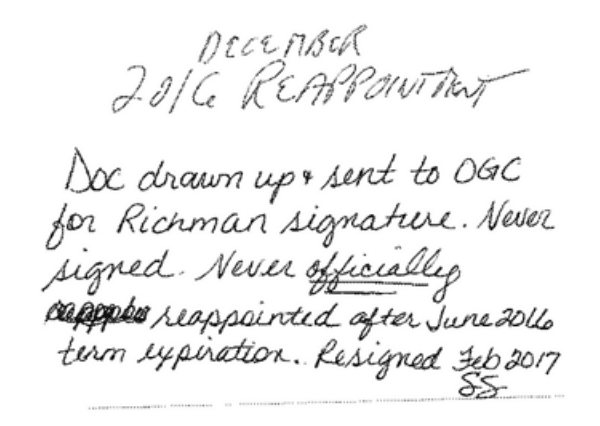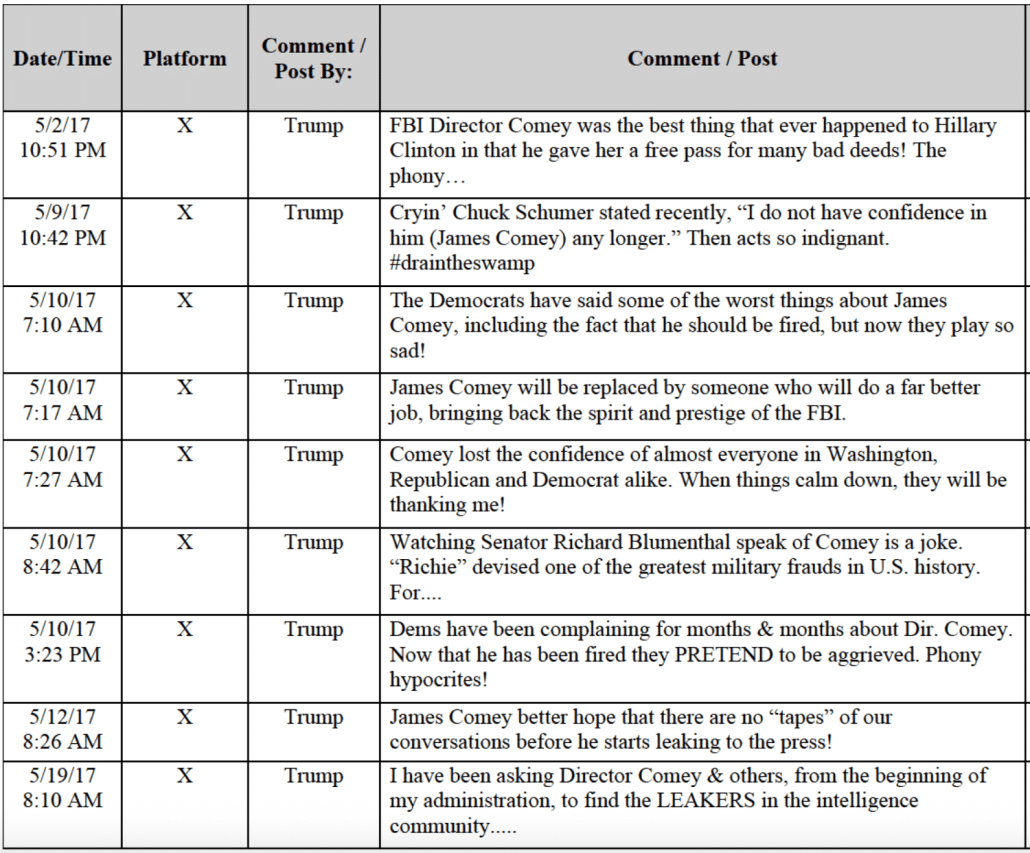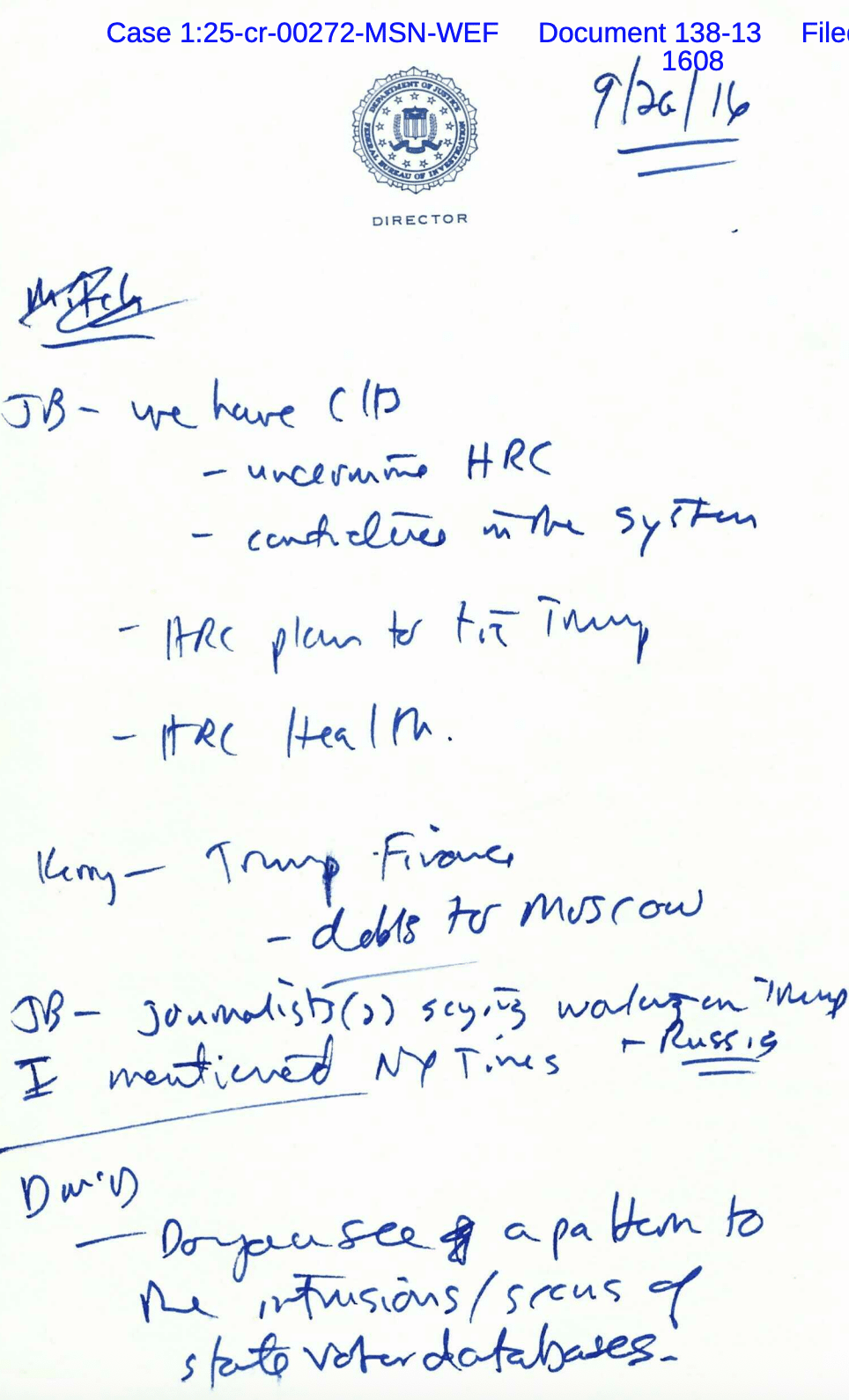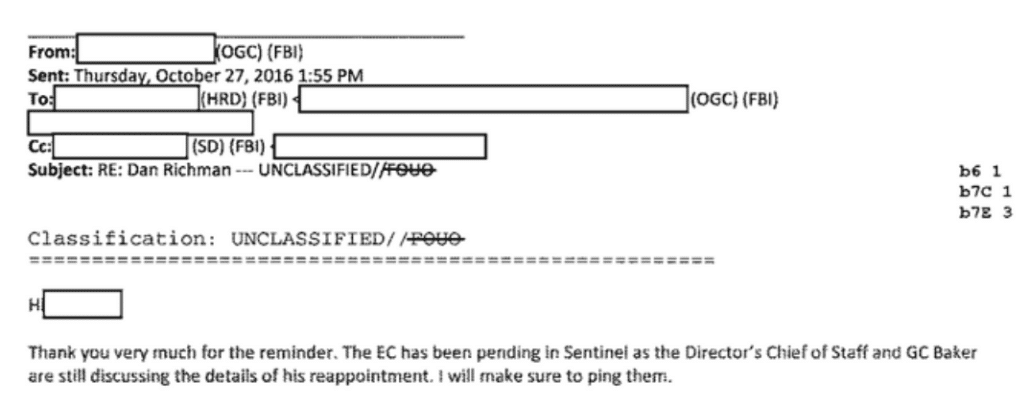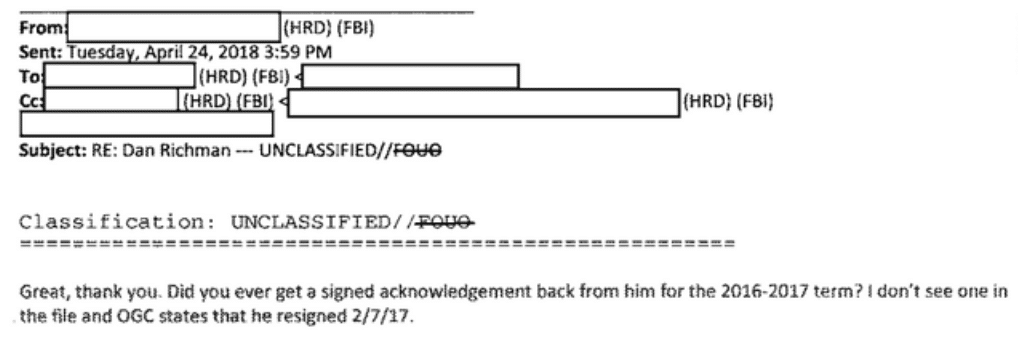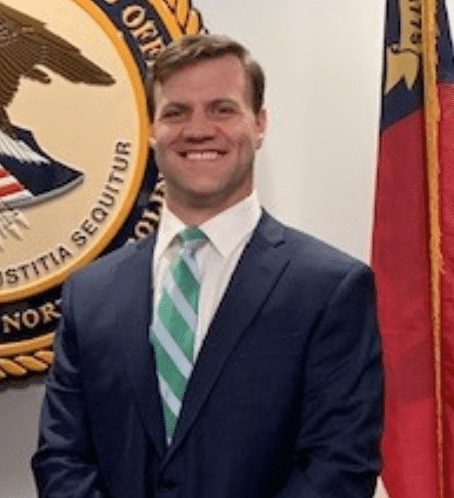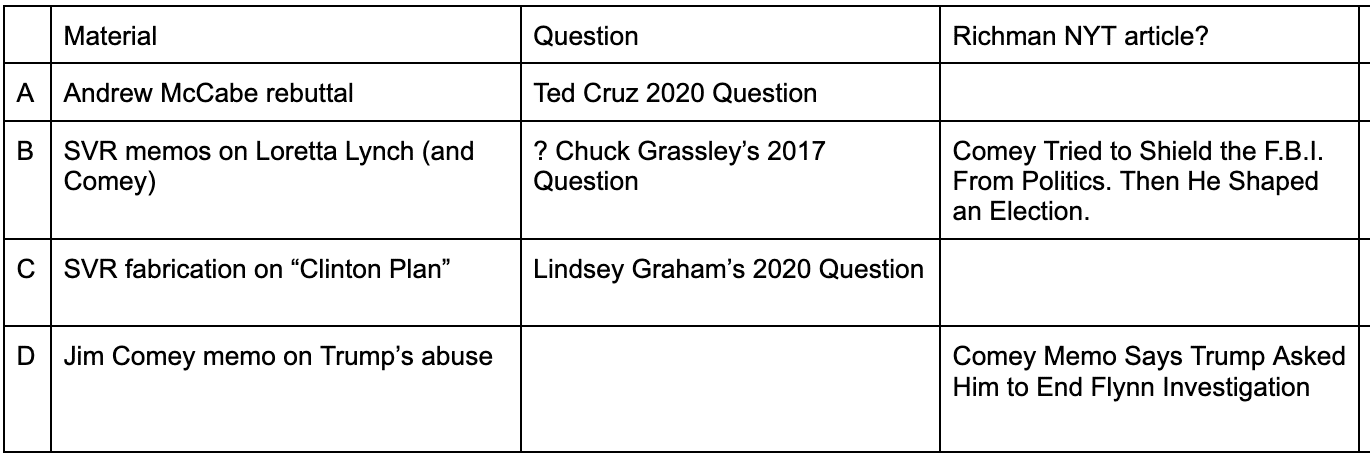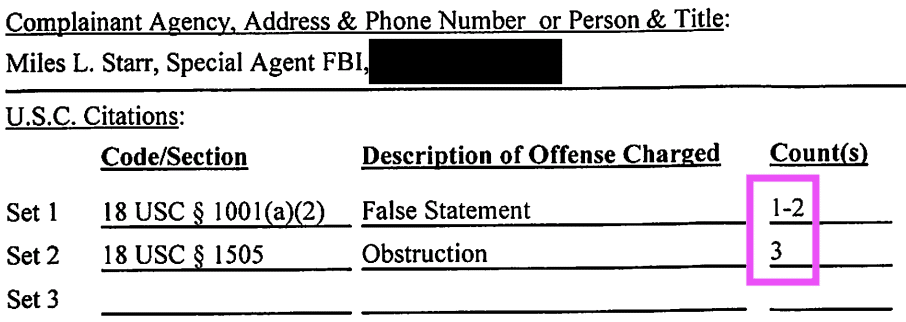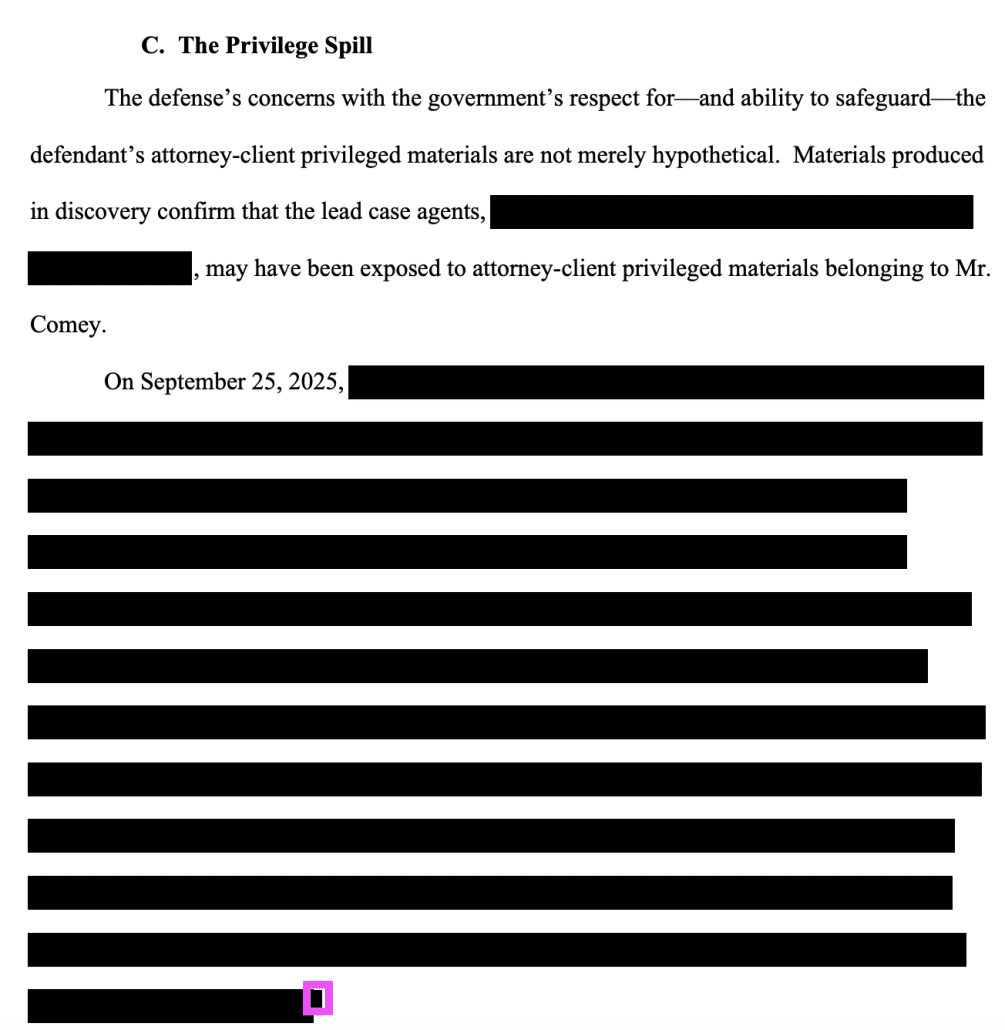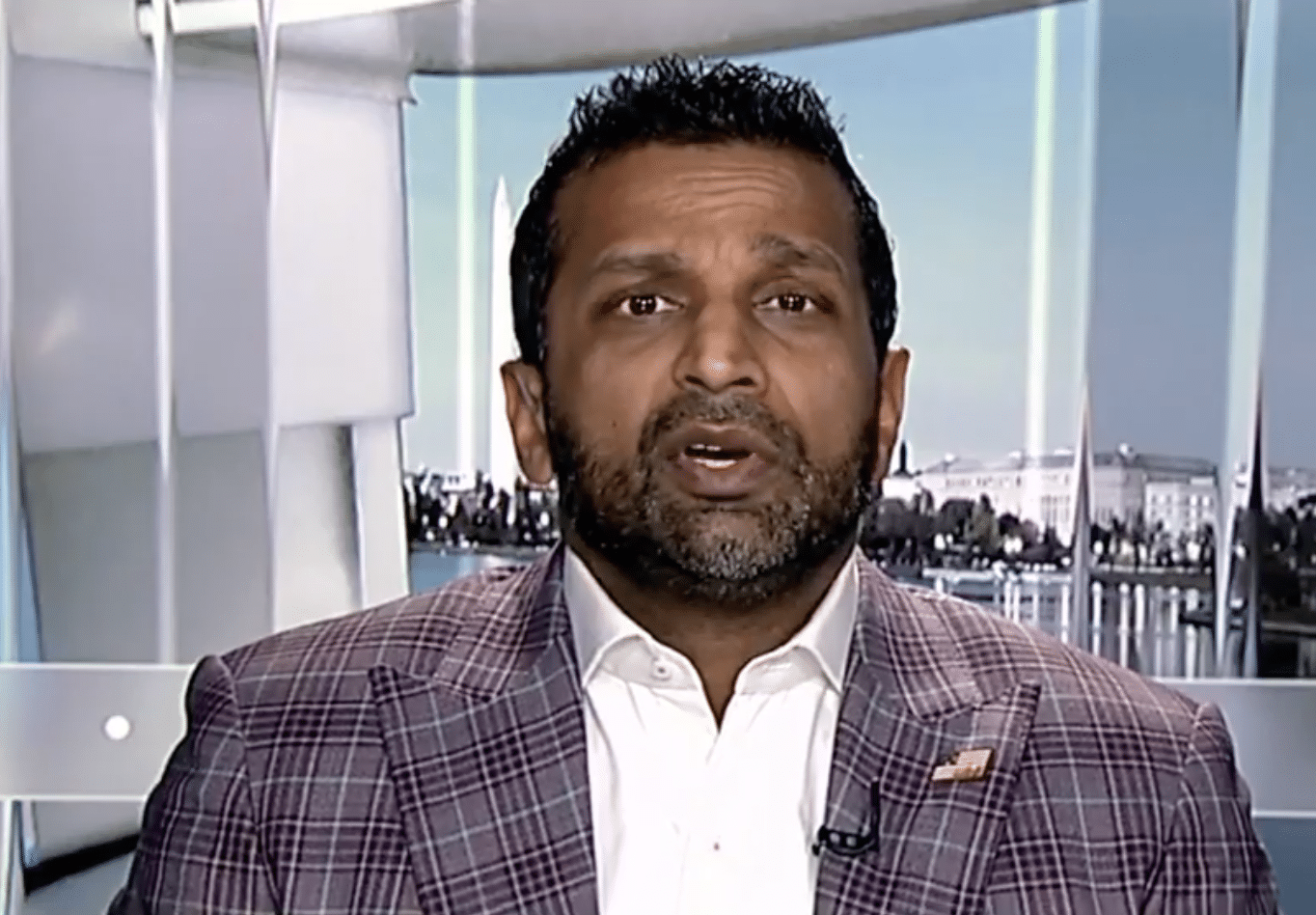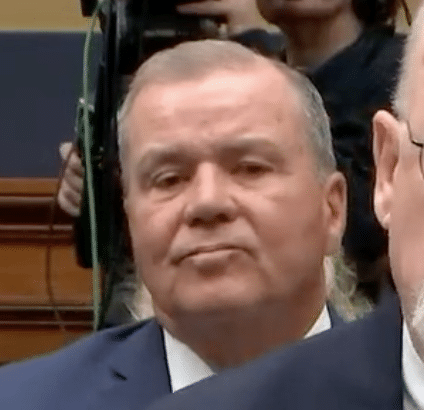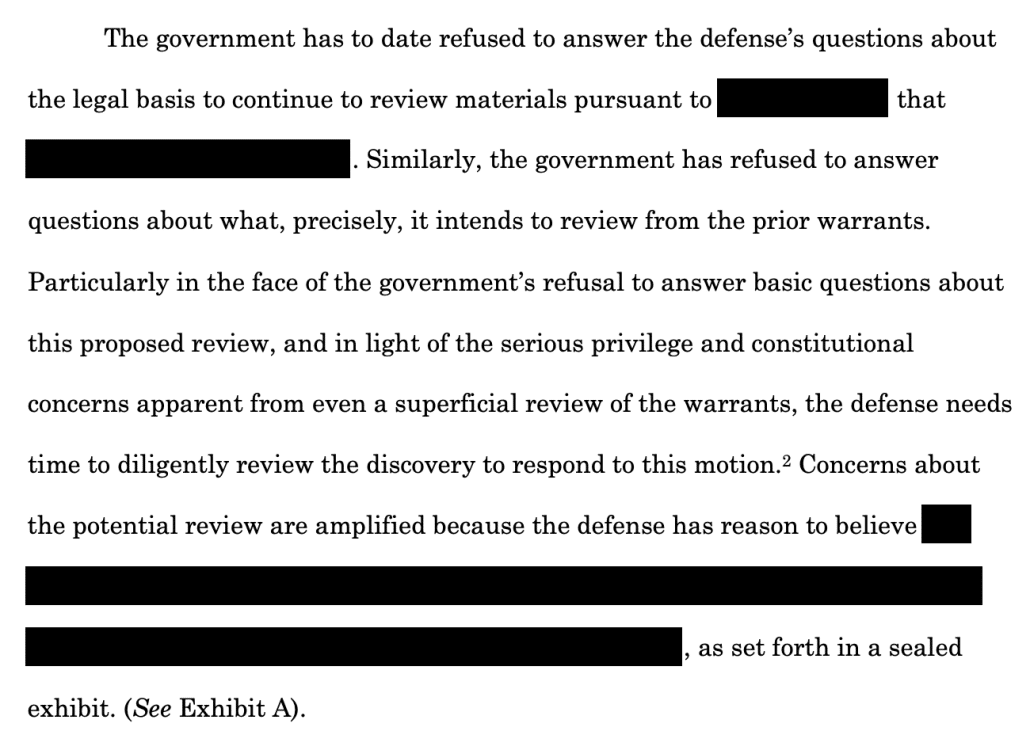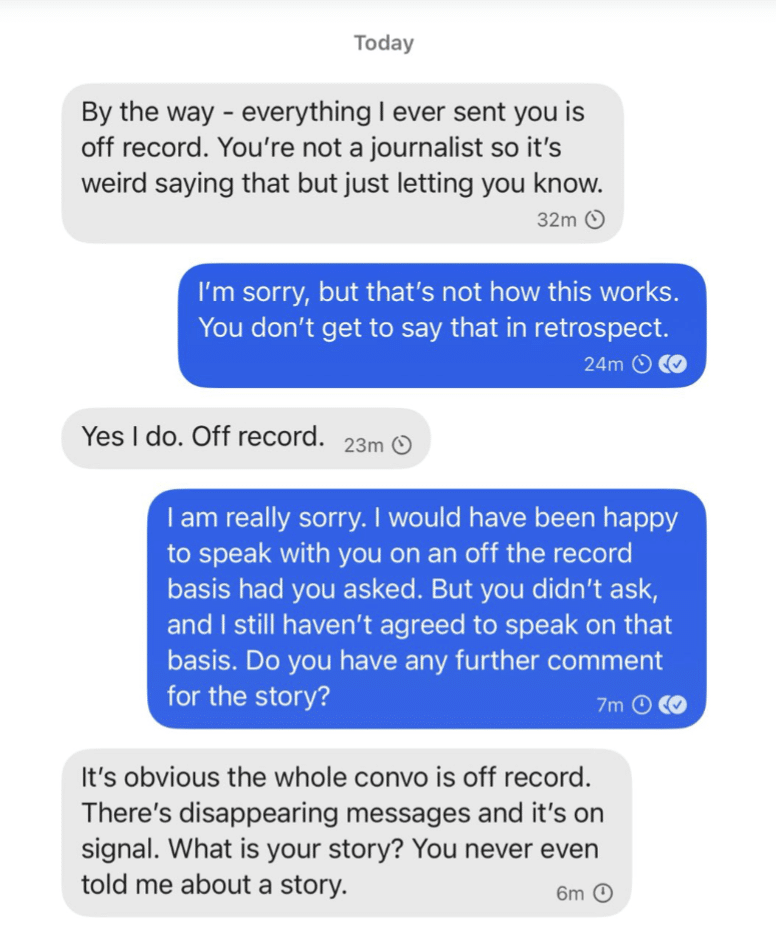Tyler Lemons’ Vindictive and Selective Bill of Particulars
I want to congratulate Loaner AUSA Tyler Lemons, who after confessing that Kash Patel’s FBI had violated Jim Comey’s Fourth Amendment rights on Sunday, went on to lay out why Comey is right to demand a Bill of Particulars on Monday. As NYT quipped,
the prosecutors who wrote the filing spent as much time suggesting that Mr. Comey had used the confidant, Daniel C. Richman, a law professor at Columbia University, as a conduit to the news media as they did seeking to reject allegations that the indictment was vindictive.
The introduction is one page. The conclusion is 30 words. And before the 25-page discussion competently addressing Comey’s vindictive and selective prosecution claim, the brief spends 15 pages trying to claim that this prosecution caught Jim Comey lying and obstructing an investigation that would merit charges.
Mostly, though, it demonstrates that poor Tyler Lemons can’t sort out what it is he is prosecuting.
Lemons establishes the need to include transcripts omitted from the indictment
Start with transcripts. The government motion itself includes:
- A transcription of Jim Comey’s May 3, 2017 exchange with Chuck Grassley (before he released a memo describing Trump’s misconduct)
- A transcription of an exchange Comey had on June 8, 2017 with Susan Collins describing sharing that memo through Richman
- A transcription of the September 30, 2020 exchange Comey had with Ted Cruz that is charged as Count One of the indictment
In footnotes to the first,
6 The transcript attached to the defendant’s motion non-substantively corrects Senator Grassley’s second question. See C-Span, User Clip: Sen. Grassley Questions James Comey (May 3, 2017), https://www.c-span.org/clip/senate-committee/user-clip-sen-grassley-questions-jamescomey/4853218.
And third transcriptions, Lemon makes observations about the inaccuracy of transcripts Comey included as exhibits to his vindictive and selective motion (Grassley, Cruz) — though neither were transcripts Comey himself produced.
9 The transcript attached to the defendant’s motion non-substantively corrects Senator Cruz’s questions and the defendant’s first answer; the transcript also erroneously adds the word “that” to Senator Cruz’s final question and omits the word “is” from the same question. See, e.g., POLITICO, Archive: Sen. Ted Cruz questions James Comey on Trump and Clinton investigation leaks (Sept. 26, 2025), https://www.politico.com/video/2025/09/26/archive-sen-ted-cruzquestions-james-comey-on-trump-and-clinton-investigation-leaks-1759922.
But Lemons relegates the transcription of the exchange between Comey and Graham from the September 30, 2020 hearing to an exhibit, thereby facilitating his effort to hide that Graham’s question was about a September 7, 2016 CIA referral, and not about the Russian fabricated Clinton plan generally.
The transcriptions of the Grassley-Comey and Cruz-Comey exchange that Comey included in his literal truth motion do not include the inaccuracies Lemons noted. But as a footnote explained, Comey relied primarily on the video he submitted with that exhibit.
For the rest of this brief, references to the exchange between Mr. Cruz and Mr. Comey cite to the Oversight Hearing Video Clip, which provides the most accurate depiction of the exchange. But the Oversight Hearing Transcript is a useful reference as well.
But as Comey notes in his vindictive motion, his literal truth motion, and his request for a Bill of Particulars motion, the indictment itself misquotes the exchange and in no way identifies what specifically Comey lied about.
the text of Count One both misstates the testimony Mr. Comey actually gave and misquotes the question posed by Senator Ted Cruz. See Mot. to Dismiss Indictment Based on Vindictive & Selective Prosecution, ECF No. 59 at 15; Mot. to Dismiss Based on Fundamental Ambiguity & Literal Truth at 2-4.
So as charged, Comey is being prosecuted for an exchange that didn’t happen the way Lindsey the Insurance Lawyer claimed it did. Comey has asked for accurate specifics, and Lemons emphasized the inaccuracies of what is out there.
Lemons can’t distinguish between the investigations and leaks at issue
Now consider the claimed structure of that passage and what it actually says. Doing so reveals that Lemons doesn’t understand what he’s referring to (or, worse, deliberately misrepresents it).
A. The defendant’s service as FBI Director and the Midyear Exam investigation. (pages 2-4)
This section summarizes the declination part of the DOJ IG Report on Midyear Exam. While this section notes that Trump fired Comey (it doesn’t say on what date in May 2017 Trump did so), it doesn’t admit that the ostensible purpose Trump gave for firing Comey pertained to Comey’s treatment of Hillary, not his refusal to shut down the Russian investigation … an oversight (and Mueller evidence) that Comey now has cause to raise in his Reply.
B. The defendant’s correspondence with Daniel Richman—and Richman’s correspondence with the press—regarding the Midyear Exam investigation. (pages 4-8)
This section starts with a description of Dan Richman, describing him as, “a Columbia Law School professor who also served as an FBI Special Government Employee since 2015.” Nowhere does Lemons mention that Richman’s SGE appointment was lapsed at least as late as October 27, nor that Richman left the FBI on February 7, 2017.
It then spends 2.5 pages describing correspondence Comey had with Dan Richman in advance of this NYT flowchart, citing these exhibits:
- January 2, 2015: Letter stating that Richman would not comment on matters he “work[s] on for the Bureau”
- October 29, 2016: Text saying, “The country can’t seem to handle your finding stuff”
- October 30, 2016: Richman offering to write an op-ed for NYT
- November 1-2, 2016: Comey suggests perhaps Richman can make Mike Schmidt smarter
- November 2, 2016: Richman noting story about Hillary
Then it spends a page describing correspondence relating to this article, the article at the core of Arctic Haze. But it does so backwards. It first describes Comey’s April 23, 2017 email thanking Richman for what he said — on the record — in it. Then it describes emails Richman sent on February 11, 2017, four days after FBI claims he left FBI, soliciting Chuck Rosenberg’s involvement in what would be the April 23 story. There’s no mention of Comey’s involvement, in advance, in that story.
And then, still under the heading of articles about Midyear Exam, Lemons describes texts between Mike Schmidt and Richman, between May 11 and 16, about Comey’s firing, specifically referencing the dinner at which Trump demanded Comey’s loyalty. Those text messages culminate in the publication of this story, “Comey Memo Says Trump Asked Him to End Flynn Investigation,” the story first revealing that Trump asked Comey to let the Flynn prosecution go.
C. The defendant’s disclosure of memoranda concerning meetings with the President and his pertinent Senate testimony. (pages 9-12)
Having already described the publication of the story about the memos, Lemons then describes Comey’s testimony in 2017 about them. He describes Comey telling Grassley on May 3, 6 days before he was fired and 8 days before the Schmidt and Richman texts start, that he had not asked anyone to serve as an anonymous source in news stories about the Clinton or Trump investigations (note, on that day there was no Trump investigation, there was an investigation into others). He describes Comey, three weeks after the story (Lemons doesn’t provide the date, June 8, which is important context to the next section showing Trump wailing about “leaks”) truthfully telling Susan Collins that he asked a friend to share the memo with a reporter.
COMEY: I asked—the president tweeted on Friday [May 12], after I got fired, that I better hope there’s not tapes. I woke up in the middle of the night on Monday night, because it didn’t dawn on me originally that there might be corroboration for our conversation. There might be a tape.
And my judgment was, I needed to get that out into the public square. And so I asked a friend of mine to share the content of the memo with a reporter. Didn’t do it myself, for a variety of reasons. But I asked him to, because I thought that might prompt the appointment of a special counsel. And so I asked a friend of mine to do it.
Which he immediately follows with Ted Cruz’ questions from 2020, as if Richman sharing the memos could be responsive (much less material) to Ted Cruz’ question about asking someone at the FBI to share stuff anonymously.
D. The President’s concern with the defendant’s official conduct. (pages 12-14)
The next bit is central to the Loaner AUSAs’ claim that Trump wasn’t prosecuting Comey for his opposition but instead out of a legitimate concern about leaks. A one page description of Trump’s obsession with what he claimed were Comey’s leaks treats the Richman memos as a leak, even though Comey admitted to releasing them within a month.
Shortly after the defendant was fired, the President began to publicly express his concern that the defendant had leaked (or authorized the leak of) investigative information and had given false or misleading testimony to cover it up. For example, on May 31, 2017, he referenced “the false or misleading testimony by James Comey.” Def. Mem., Dkt. No. 59-4 at 2. On June 9, he posted, “Comey is a leaker!” Id. Two days later, he posted, “I believe the James Comey leaks will be far more prevalent than anyone ever thought possible. Totally illegal?” Id. In July, he reposted a news report stating, “Report accuses material James Comey leaked to a friend contained top secret information.” Id. In October 2017, he posted that “James Comey lied and leaked and totally protected Hillary Clinton.” Id. at 3. In March 2018, the President posted, “Wow, watch Comey lie under oath to Senator G when asked ‘have you ever been an anonymous source … or known someone else to be an anonymous source…?’ He said strongly ‘never, no.’ He lied as shown clearly on @foxandfriends.” Id. at 6.
This passage is triply misleading.
First, sharing the memos was anonymous at first, but it was not a leak, Comey admitted to it within a month, and it was investigative mostly insofar as it predicated an investigation into Trump. It became investigative because Trump fired Comey.
Second, as noted, through the structure of this section, Lemons does a number of things to falsely suggest this could be the charged lie, when it could not, for several different reasons I’ll explain below.
Most importantly, it ignores the nine complaints Trump made about Comey, listed in Comey’s 60 page exhibit of those complaints, before the first one listed in the response, which started with a claim (debunked by the exhibits in this motion) that “Comey was the best thing that ever happened to Hillary Clinton,” to say nothing of Trump’s “James Comey better hope that there are no ‘tapes’ of our conversations before he starts leaking to the press,” to which the memo release was a response.
E. The defendant’s public posts about President Trump. (page 14)
The next section attempts to show that Trump was concerned about Comey’s “leaking” (that is exposure of Trump’s misconduct) before Comey said anything bad about Trump — but I’m very confused how this sentence — “his motion shows his first social-media post speaking out about the Trump administration (not the President directly) came in June 2017, over a month after he was fired—and after the President had publicly posted about his “false or misleading testimony” — is consistent with Comey giving testimony about Trump’s misconduct and Comey’s accurate prediction Trump would lie about it on June 8, 2017, exactly a month after he was fired (in the hearing in which he told Collins about the memos). Maybe I just don’t understand. Or maybe in his desperation to sell a narrative, Lemons is lying to the court about the substance of Comey’s testimony.
This has the effect of making the memos the chicken and the egg of this investigation, which nevertheless could not be included in either charge against Comey.
F. Law enforcement’s investigations into unauthorized public disclosures. (pages 14-15)
Having already confessed he doesn’t know what a leak is and doesn’t know what FBI employ is, Lemons then introduces his desperate attempt to claim that receiving a briefing that might be about what we now know is Russian disinformation 19 days after not receiving a memo about it that probably emphasizes something else should be recalled when Lindsey Graham asked about it in specific reference (a reference Lemons buries) to memo redacted in a way that would obscure its import.
I will return to this section’s description of the 18 USC 2071 investigation trying to criminalize the non-removal of documents from the FBI as removal from the FBI. (!?!?!) Apparently, on July 21, 2025, Jack Eckenrode and Miles Starr decided that leaving a bunch of documents that were already preserved in FBI servers in an inventory room amounted to removal. Mostly it’s an attempt to indulge Kash Patel’s stupidest conspiracy theories.
But the important point, for the purpose of this filing, is that, under the heading promising information about “unauthorized public disclosures,” Lemons falsely claims an investigation into what would, if true, be an effort to bury evidence, was instead an investigation into sharing it.
G. Appointment of U.S. Attorney Halligan and the indictment. (pages 15-17)
And that’s important because the excuse Lemons offers for the hiring of Lindsey Halligan is Trump’s obsession with wildly inaccurate propaganda about the release of the Arctic Haze file, which leads directly from a John Solomon article treating the NYT article about the Hillary investigation as if it pertained to Russia.
On August 13, 2025, the President posted a link to a Fox News segment with the text, “DOCUMENTS REVEAL JAMES COMEY ASSOCIATE LEAKED CLASSIFIED INFORMATION TO THE NYT.” Donald J. Trump (@realDonaldTrump), TruthSocial (Aug. 13, 2025 at 12:42 ET). 12 The next day, he posted a link to a news article discussed in the segment. Donald J. Trump (@realDonaldTrump), TruthSocial (Aug. 14, 2025 at 7:02 ET). 13 The article detailed FBI documents recently disclosed to Congress and indicated that Richman had admitted “that he was given access by Comey to what turned out to be highly classified information up to the SCI level and sometimes provided information to reporters on an anonymous basis.” John Solomon and Jerry Dunleavy, Comey’s media mole told FBI he shaped Russia narrative, needed ‘discount’ to deny leaking intel, Just the News (Aug. 12, 2025).14 On September 20, 2025, the President posted:
Pam: I have reviewed over 30 statements and posts saying that, essentially, “same old story as last time, all talk, no action. Nothing is being done. What about Comey, Adam “Shifty” Schiff, Leticia??? They’re all guilty as hell, but nothing is going to be done.” Then we almost put in a Democrat supported U.S. Attorney, in Virginia, with a really bad Republican past. A Woke RINO, who was never going to do his job. That’s why two of the worst Dem Senators PUSHED him so hard. He even lied to the media and said he quit, and that we had no case. No, I fired him, and there is a GREAT CASE, and many lawyers, and legal pundits, say so. Lindsey Halligan is a really good lawyer, and likes you, a lot. We can’t delay any longer, it’s killing our reputation and credibility. They impeached me twice, and indicted me (5 times!), OVER NOTHING. JUSTICE MUST BE SERVED, NOW!!! President DJT
None of this actually helps Lemons, because it suggests Trump hired Halligan specifically to open an investigation into an already declined prosecution.
But it does create a narrative, one Lemons uses to claim that Trump was not out to get Comey because Comey disclosed Trump’s fundamental corruption, but instead because Comey leaked classified information, a claim not backed by a single thing in this filing.
Indeed, what the filing does, in part, is prove that Trump falsely accused Comey of leaking classified information for years, without anything to back that claim.
In Section A, Lemons declines to address that Trump ostensibly fired Comey because of the Hillary investigation, not the Russian one. In Section B, Lemons treated a story about the Trump’s misconduct as instead about Hillary investigation. In Section D, he pretended Trump was concerned about leaking rather than being exposed as corrupt. In Section F, Lemons misrepresents a bogus cover-up claim as instead a leak investigation. In Section G, Lemons relies on a John Solomon post confusing the Hillary investigation with the Russian investigation.
The guy who plans to present all this to a jury in a few months appears unable to distinguish between the Hillary investigations (remember, the Andrew McCabe sourcing Ted Cruz asked about was about the Clinton Foundation, not the emails) and the Russian investigation, which Lemons exacerbates by imagining that the Russian investigation was always about Trump.
Lemons may already recognize that Lindsey the Insurance Lawyer charged the wrong things (which is why Comey’s request for grand jury transcripts is merited).
None of these stories match the elements of the offense
The problem for Lemons is that none of these scenarios fit the elements of the offense for the crimes charged.
For the 18 USC 1001 charge, prosecutors need to prove that Comey knowingly lied about a leak about Hillary he authorized Richman to share anonymously while he was at the FBI.
As a threshold matter, Comey will be able to argue the charges cannot survive, because the hearing scope did not include the Hillary investigations.
1 Before the hearing, the committee agreed that it would be limited to four specific topics: (i) “Crossfire Hurricane,” (ii) the December 2019 Department of Justice Inspector General report’s “Review of Four FISA Applications and Other Aspects of the FBI’s Crossfire Hurricane Investigation,” (iii) the Carter Page FISA applications, and (iv) Christopher Steele’s source network and primary sub-source.
So any story about Hillary is, by definition, outside of scope.
The only one of these stories where there’s some evidence that Comey authorized a story about Hillary in which Richman was not named was the November 2016 one. Even by then, however, the FBI was trying to fix Richman’s Special Government Employee.
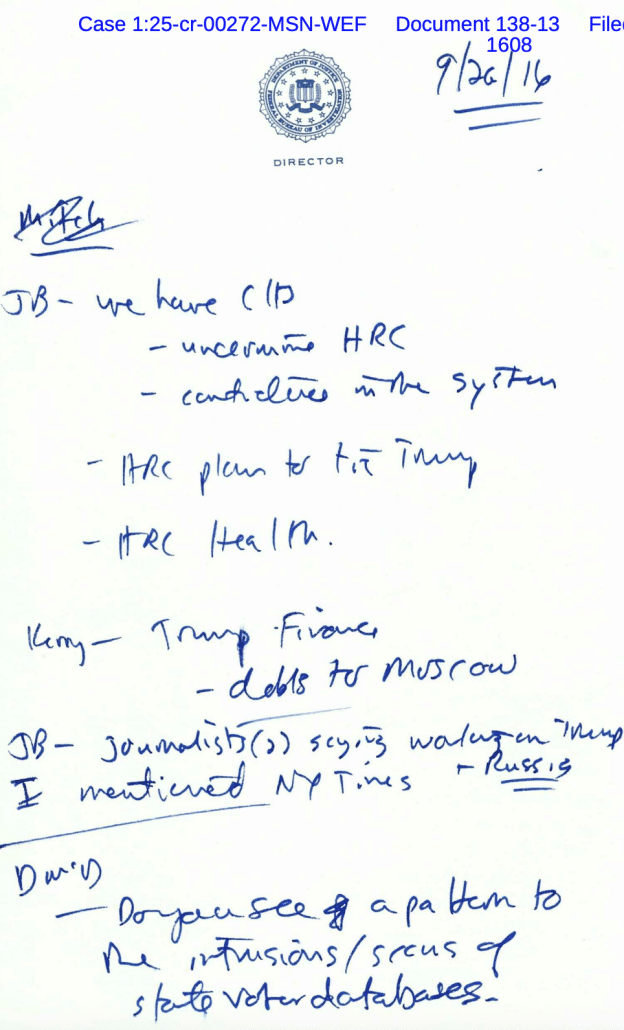 As for the 18 USC 1505 charge, prosecutors will need to prove that Comey told lies that were intentional that impeded that investigation. Because of the scope of the hearing (and therefore the investigation), they can’t argue the two Hillary stories are material. Comey was aware of the scope of the hearing and Hillary wasn’t part of it.
As for the 18 USC 1505 charge, prosecutors will need to prove that Comey told lies that were intentional that impeded that investigation. Because of the scope of the hearing (and therefore the investigation), they can’t argue the two Hillary stories are material. Comey was aware of the scope of the hearing and Hillary wasn’t part of it.
There’s no way they can argue that Comey should have admitted asking Richman to serve as an anonymous source for the May 2017 story impeded the Senate investigation, because he had admitted that years earlier!!
That leaves just the Lindsey Graham question, which was specifically about whether Comey remembered the CIA referral, dated September 7, that Kash Patel had recently released in redacted — and therefore likely hopelessly misleading — form. As the transcript Lemons buries in an exhibit makes clear, the question — the one the grand jury no-billed — was not whether Comey was briefed; it was whether he recalls getting the document itself (Lindsey misstates what this document even was).
Lindsey: Do you recall getting an inquiry from the CI, excuse me, the intelligence community in September, 2016, about a concern that the Clinton campaign was going to create a scandal regarding Trump and Russia?
Mr. Comey: I do not.
Senator Graham: You don’t remember getting a investigatory lead from the intelligence community, hang on a second … Let me find my document here.
Speaker 3: There it is.
Senator Graham: September the Seventh, 2016, the US intelligence officials forwarded an investigative referral to FBI Director James Comey and Assistant Director of Counterintelligence Peter Strzok regarding US presidential candidate Hillary Clinton’s approval of a plan concerning US presidential candidate Donald Trump and Russian hackers hampering US elections as a means of distracting the public from her use of a private email server. You don’t remember getting that or being talk, that doesn’t …
Mr. Comey: That doesn’t ring any bells with me.
Lemons makes much of the fact that a copy of the referral was found in a storage room at FBI where other Durham materials were found; he claims to have evidence that it was once in the FBI Director’s office (but does not date when that was). That fact will face admissibility problems given Jack Eckenrode’s role in all that, which will in turn elicit questions why Eckenrode continues to base his investigations on what he discovered four years ago was Russian disinformation.
Poor Loaner Lemons will be forced to explain why Brennan was briefing Comey on a topic Comey had been informed of 19 days earlier, and why Comey would write that down as if it were news.
It will not be a slam dunk proving that the reference, HRC plan to tie Trump, pertains to the same SVR documents that the referral did. I know how I would do it. But I also know how a focus on “undermine HRC” just above that will make it easy to present this reference as Brennan (presumably) said he understood it–to be a reference to the victimization of Hillary, meaning Graham’s description of it would unrecognizable to Comey. As this reference appears, it backs Brennan’s conception of how most of the IC (aside from the Cyber Agents who fucked up the Alfa Bank Spectrum Health investigation) viewed this reference, as an attack on Hillary.
Ultimately, the defense to treating this as the basis for the obstruction charge (which I suspect it is) is to lay out how painfully wrong right wingers have been about what happened in 2016 from the start.
In Lemons’ bid to claim there was basis to charge Comey, he instead made it quite clear that none of his claimed issues match the charges as charged.
Which is to say, he made an exceptionally good case that Comey has reason to wonder what the fuck he is actually charged with.

